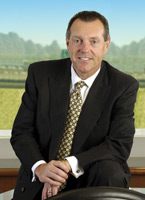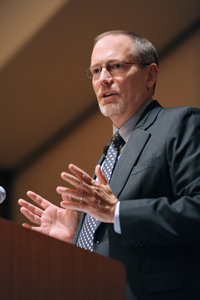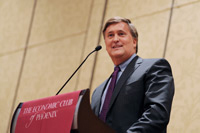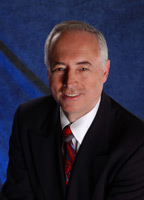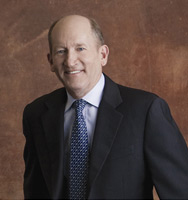
Craig Weatherup: What’s your leadership model?
Retired CEO Craig Weatherup was addressing a group of finance undergraduates at the W. P. Carey School recently when he popped a question. "How many of you would profess to have a model or a definition of how you want to grow as a leader?" he asked. Three or four hands went up. "I think everybody should raise their hand on that question, and I’ll tell you why," he said. Weatherup himself has a model for leadership: a simple yet comprehensive set of attitudes and behaviors that have shaped him in his personal life and as the leader of people and organizations — often through periods of dramatic change.


